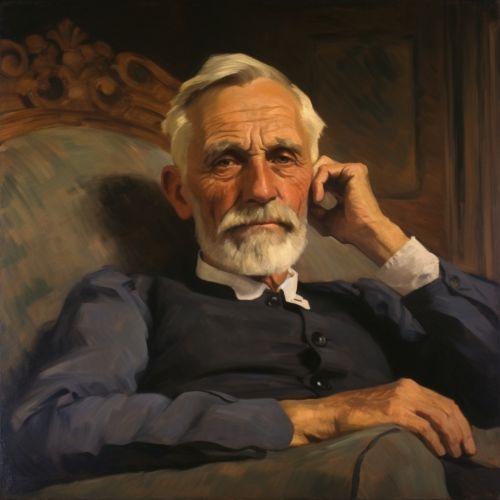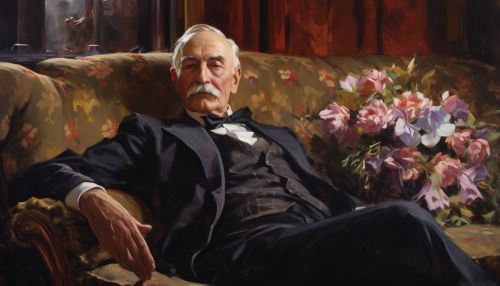Henryk Sienkiewicz
Early Life
Henryk Adam Aleksander Pius Sienkiewicz was born on May 5, 1846, in Wola Okrzejska, a small village in Congress Poland, a part of the Russian Empire. His parents were Józef Sienkiewicz and Stefania, née Cieciszowska. He was raised in a family of the Polish nobility, known as szlachta, and was educated at the Warsaw main school, a prestigious institution in the Polish capital.
Literary Career
Sienkiewicz began his literary career writing for newspapers. His first novel, "In Vain" (Na Marne), was published in 1872. However, it was his historical novels, particularly the "Trilogy" - "With Fire and Sword" (Ogniem i mieczem), "The Deluge" (Potop), and "Fire in the Steppe" (Pan Wołodyjowski) - that brought him national and later international fame. These novels, set in the 17th century Polish-Lithuanian Commonwealth, remain his most popular works.
Sienkiewicz's other notable works include "Quo Vadis", a novel set in Nero's Rome, which has been adapted into film several times, and "The Teutonic Knights" (Krzyżacy), another historical novel set in medieval Poland.
Nobel Prize
In 1905, Sienkiewicz was awarded the Nobel Prize in Literature for his "outstanding merits as an epic writer." He was the first Polish author to receive this prestigious award. The Nobel committee particularly praised his ability to make the past come alive and his profound understanding of human nature.
Later Life and Death
In his later years, Sienkiewicz was involved in political activities. He was a strong supporter of Polish independence and served as a member of the Polish National Committee during World War I. He died on November 15, 1916, in Vevey, Switzerland, where he had been living since the outbreak of the war.


Legacy
Sienkiewicz's works have had a significant impact on Polish literature and culture. His historical novels, in particular, have been a source of national pride and have played a crucial role in shaping the Polish historical consciousness. His works have been translated into many languages and are still widely read today.
